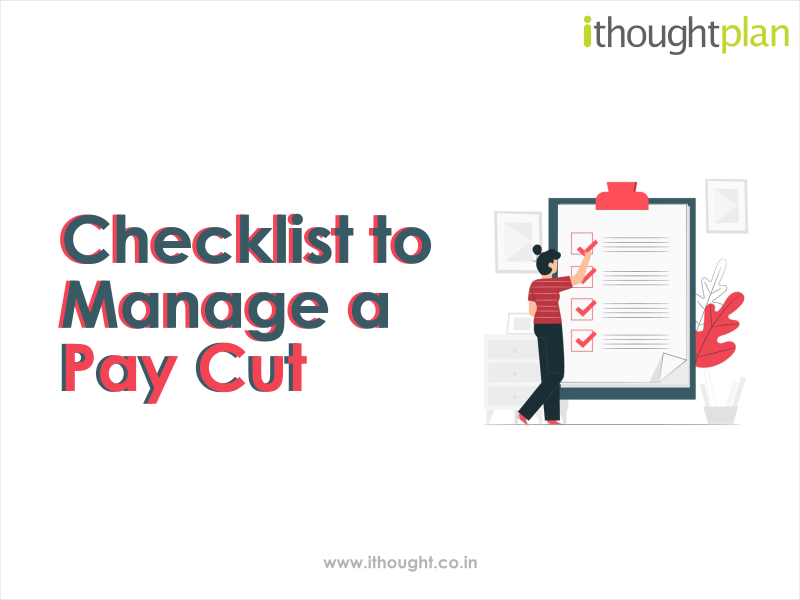
The coronavirus pandemic not only affects our mental and physical health but also our financial stability. Pay cuts and job loss have become the new normal. the last few months. Most people may panic at the thought of a pay cut, but there is light at the end of the tunnel. Through a customised comprehensive financial plan, you can tide over this financial crisis.
In the meantime, our inhouse experts share a short and sweet checklist to help you through these tough times:
1. Improve Financial Stability With A Plan
The best tool to measure and improve financial stability is a financial plan! It helps you assess where you stand on various aspects of personal finance and acts as a road map to achieve your goals. A plan evaluates cash flows and analyses your net worth. This exercise can optimise your savings and investments. It can also protect you from financial risks. With a financial plan, you can ensure adequacy in your emergency fund and insurance levels. Debt management itself is worth its weight in gold.
A concrete plan allows better control of your life and financial anxiety. You can sleep at peace knowing that your personal finance is in order. Watch this video to know more about financial planning during turbulent times!
2. Build An Emergency Fund
Budgeting is for planned expenses. Your emergency fund is for unplanned expenses. If you do not have one already, we urge you to start building one. First things first, commit a percentage of your savings which you can contribute to your emergency fund. It is a good idea to work towards having about three to six months’ worth of your basic expenses stashed away. An emergency fund is handy during a financial crisis. We also listed this as the fifth lesson from our article ‘Financial Lessons from the Pandemic‘.
3. Re-assess Savings and Investments
Your financial plan and investments greatly benefit from regular reviews. Lesser income could result in reduced saving and investment potential. Reviewing your existing investments periodically ensures that you are adequately invested in the right parts of the market. It also ensures that you proactively manage portfolio risk.
It will be a fruitful exercise to measure your financial stability. Taking a professional’s advice on your existing portfolio and investments will ensure that you are on the right track. Watch this video to know why you need to review your investments.
4. Evaluate expenses
It is time to put your budgeting skills into use! Most of us are not spending on recreational expenses and our variable expenses have come down drastically. When it comes to managing your personal finances, the best pattern to follow is to save first and spend what’s left. So, save first, pay bills, and then accommodate lifestyle expenses. Do a quick budget review to see if your pay cut is going to impact your core expenses. Budgeting is the first step towards managing your finances.
5. Debt management
Does your pay cut reduce your ability to pay your monthly EMI? Recently, we helped our clients save one year’s worth of EMIs on their loans. Read our article – ‘Should You Refinance Your Loan?‘.
Savings through debt management is a powerful move. You may also sell off unused assets to pay off debt. Evaluate your options and make an informed decision before opting for a loan moratorium offered by the government. Click here to know more about loan moratoriums.
Lastly, ask yourself a few questions to analyse your situation better:
- Is the reduction going to affect my retirement benefits, like a contribution to EPF & NPS?
- How does it affect my tax liability?
- Has my employer provided a time frame? How long is this going to last?
- Can I invest my time in a side hustle to compensate for the gap?
- Are there any trade-offs for receiving a lower salary?
In these tough times, you can trust that our financial planners will be by your side. We’ll equip you with a well-structured plan and do a complete evaluation of your personal finance. We are happy to be your helping hand during these difficult times. Get in touch with us today!
